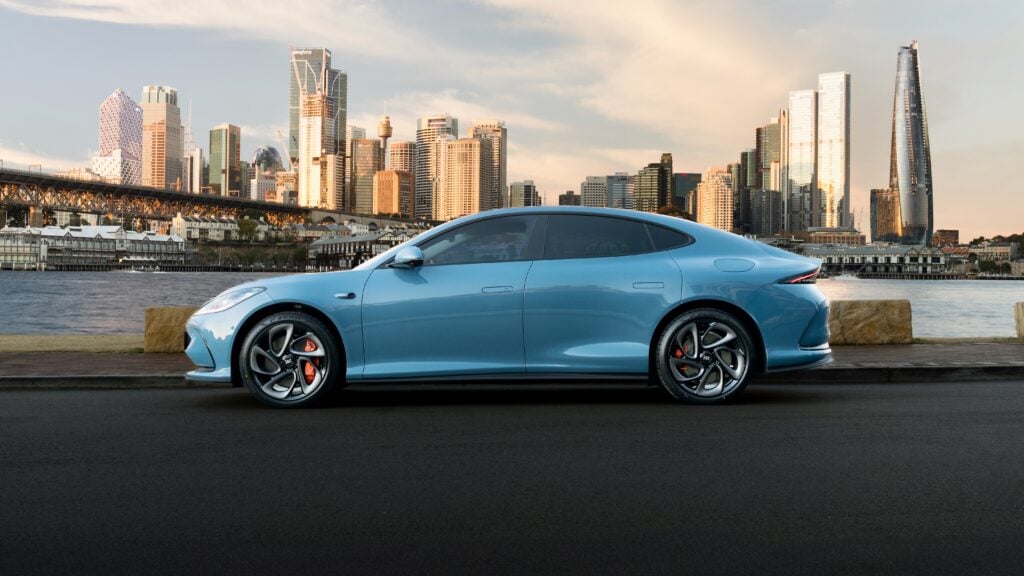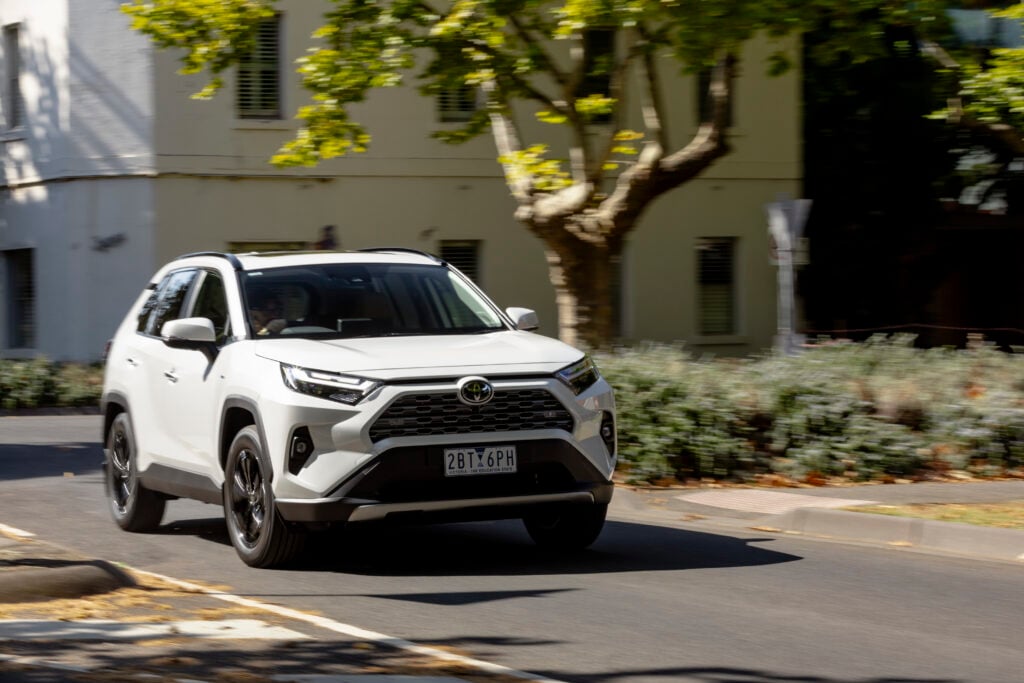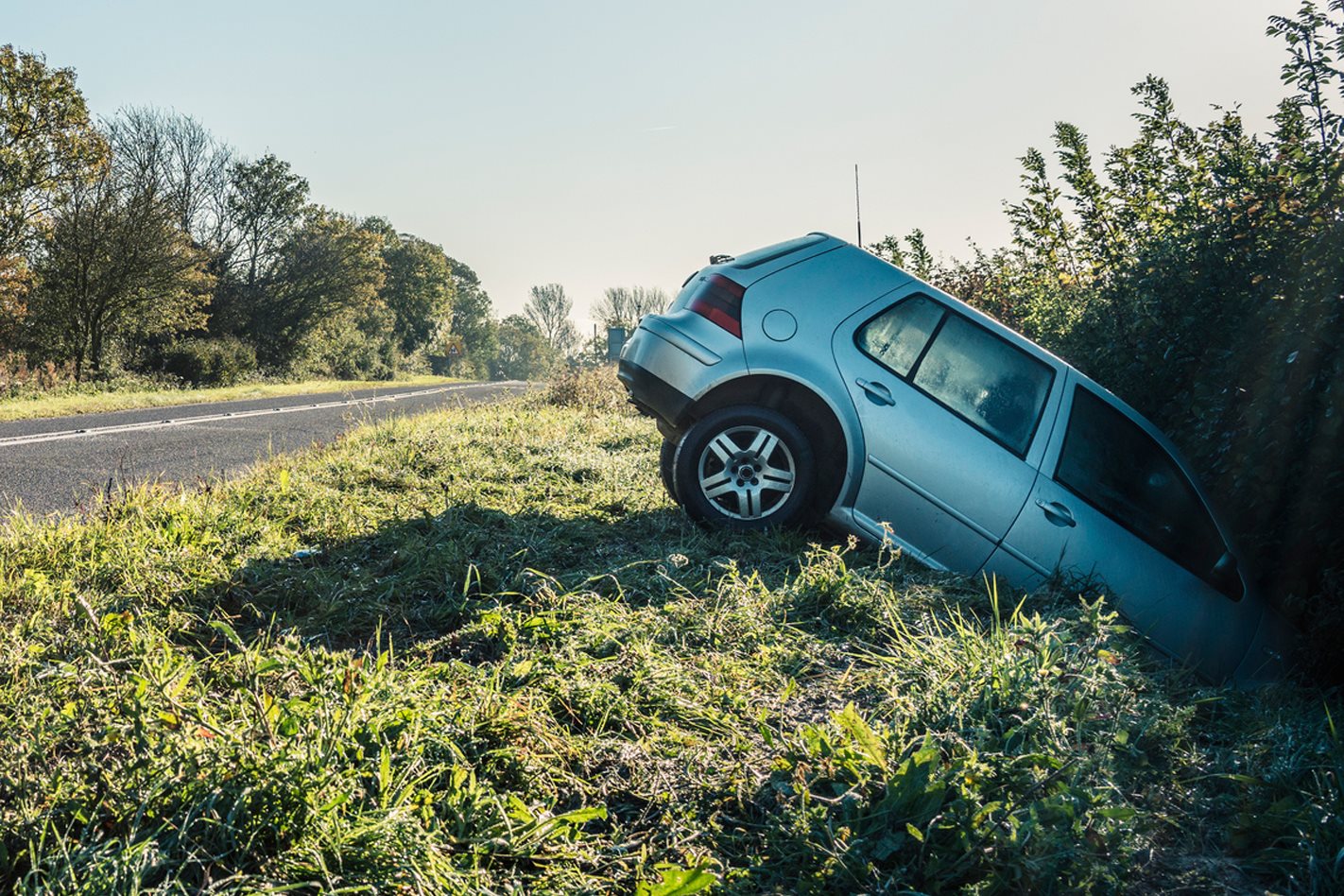
No one sets out on a road trip expecting to be involved in a car accident and, even though the constant advancement of driver assistance technology, and passive and active safety systems are making cars safer than ever, scrapes, bingles and collisions are still a part of motoring life.
But, while you might not be planning to have a crash, you certainly should know what to do if the worst happens, and your trip ends in bent metal. Regardless of how many vehicles were involved, how serious, or who’s fault it appears to be, here’s what to do.
STOP
It may seem like the obvious thing to do following an incident and you may not even have a choice, but the first thing you need to do is stop your vehicle in the safest place, as soon as possible and turn on the hazard lights. It’s vital you make sure other drivers are able to see you clearly to minimise the chances of the situation becoming worse.
Next, assess the situation and whether it is safe to leave your vehicle. Signs of smoke and fire will warrant a speedy exit, whereas busy traffic or a worsening situation outside may make it safer to stay in the vehicle until help arrives.
Then check on the occupants of your vehicle and, if possible, any others involved. Seek medical attention for any injuries and don’t hesitate to call 000 if you suspect serious injuries or further danger.
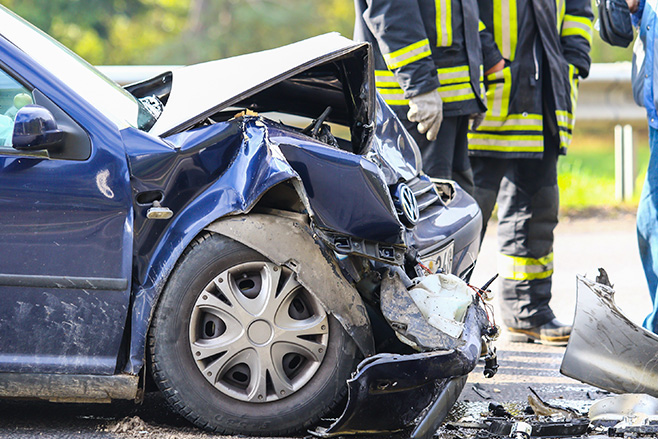
Apply first aid if you know how but remember the golden rule – don’t put yourself in danger to look after others.
You must not leave the scene of an incident if you are directly involved, until you have exchanged details with all others involved or until the police say so.
CALL EMERGENCY SERVICES
Depending on the circumstances, you may need to call for some or all of the emergency services. You’re only legally required to call the police if someone is seriously injured but a police presence is a good idea if you suspect anything illegal such as a drug or alcohol effected driver, or dangerous vehicle. The police are also well versed in recording and documenting road traffic accidents so you may prefer an officer to attend and make sure everything has been handled correctly before leaving.
If there is no serious damage to property, no serious injuries and all involved parties have exchanged details, you do not need the police to attend.
When calling the emergency services, make sure you give them as much information as possible. Location, number of people and vehicles involved, severity of injuries if any, and the time of the incident will all help deal with the situation faster and more effectively.
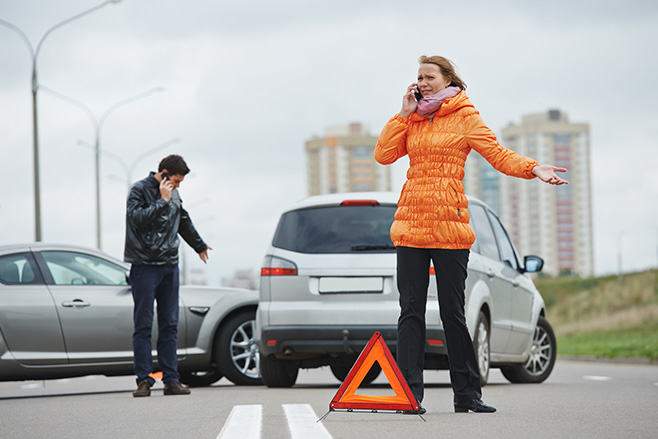
EXCHANGE DETAILS
Once you are sure everyone is safe, you will need to exchange details with any other involved parties. This does not mean you must decide who is at fault on the spot and you do not need to admit responsibility for the incident even if you feel you were at fault.
Make sure you have recorded the date, time and location of the crash, the other driver’s details (including full name and address), the rego, make, and model of the other vehicle, and the vehicle owner’s full name, address, and contact number (if the driver is not the owner).
Although not completely necessary, it is wise to also grab the name and contact details of a willing witness, the name, contact details and police station of an officer if they attend, and the name of the vehicle owner’s insurance company, type of policy, and policy number.
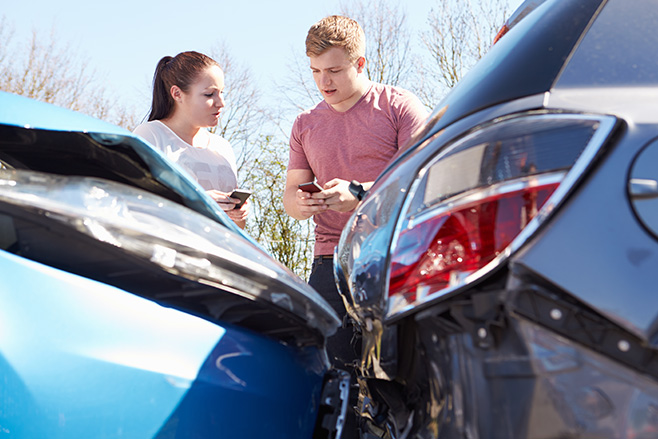
ARRANGE TOWING
A vehicle may be driven away from the scene of an accident only if it’s in roadworthy condition. If not, you’ll need to organise a tow truck. If you are in any doubt about the safety of a damaged vehicle, don’t drive it. You may not be aware of serious problems until it’s too late.
Tow truck drivers may already be at the scene before they are called, but do not let them remove your vehicle without your permission. It’s your decision who tows your vehicle, and where it goes. It’s wise to have a repairer or location in mind that you would like your car sent to and make sure to remove all your personal belongings from the vehicle before it is taken away.
NOTIFY YOUR INSURER
Contact your insurer as early as possible and explain what happened. This can often be done over the phone and without the hassle of paperwork. Insurance companies handle many incidents each day and will guide you through the process, but the more information you can provide, the better.
After that, keep track of the claim progress and repairs to make sure you are back on the road as soon as possible. If the other driver is uninsured or uncooperative, your insurance company will handle everything. That’s what you pay the premium for so make your insurer work for their fee.
Remembering all the important steps can be hard in the heat of the moment, so why not write down these five key steps and leave them in your glovebox just in case?
No matter how minor, a bingle is a stressful experience that almost everyone would prefer to avoid, but keeping calm and following some simple guidelines can stop this unfortunate but inevitable part of road use from ruining your week.

